The success of From Software's Souls franchise and its spin-offs has meant that many developers have latched on to From's idea in hopes of getting their games a similar level of recognition and popularity. People have come to refer to these games as SoulsBorne titles since they have the same tenets that made From's games a hit. While there have been many successes and failures in this field, not too many try something different beyond the lore and setting. Mortal Shell is an example that adds its own thing while also trying to ensure that the familiar properties of the SoulsBorne titles are still present. For the most part, the final result is a winner.
Like its inspiration, the story is initially simple. You play the role of a creature that looks to be somewhere between partial mummification and full-on decay; their bones are sticking to their tightly wrapped skin, which covers every possible body opening. Awakening in a void, you eventually enter the world of Fallgrim, where your fragility is more evident due to the creatures that crave your demise. The only thing you know for certain is that you hunger for power, and one person is willing to give it to you if you seek out the three sacred glands from their keepers. To progress the story, you'll delve into the various texts you find and speak with many non-lethal creatures.
Almost everything you know about a SoulsBorne title is present and accounted for in Mortal Shell. Almost all of the environments you traverse are dreary, foreboding, and filled with enemies that are so strong that even the lowliest foe can kill you. You have light and hard attacks at your disposal, and the stamina meter prevents you from mindlessly slashing and dodging; it forces you to be more careful with your actions while the world lore is doled out sparingly. You return to the site of your death if you don't want to permanently lose whatever you previously had, and save spots refresh the enemy count.
While people will find a lot of familiar elements, there are also some missing mechanics in Mortal Shell. For instance, blocking is gone. While you can get a few items to replenish health at the expense of something else, you don't have a regular healing potion. There's also no skill tree to work with and no side-quests to partake in. Those are all pretty big omissions, and while that may make people dismiss this as a leaner game for the sake of making the experience more difficult, some new mechanics help to rebalance the game.
The first new mechanic is indicated in the game's title: the shell. Throughout your journey, you'll encounter four different corpses you can inhabit, with each one acting like different classes in a RPG. You'll start with one that's quite balanced in health and stamina, while the others tip the balance in either direction while also giving you vastly different weapons. You eventually gain the ability to switch between the shells at will, and while you can't upgrade them traditionally to make them stronger, they have skill trees that amplify their attributes.
Aside from giving the player different approaches to combat, the shells do something that not many games in this genre do: give the player a small window to escape the clutches of defeat. While in a shell, the final blow that would normally kill you simply ejects you from the shell, and the game freezes for a moment so you can get your bearings before the fight continues. The objective is to jump back into your shell to continue the fight with a full health bar, but that's much easier said than done, since you're vulnerable enough that even a glancing blow can kill you. That alone makes these moments tense and makes it exhilarating to jump back into a shell.
In lieu of a blocking ability, Mortal Shell has a hardening mechanic that lets you turn yourself into stone until you either get hit or initiate the break. This seems like a stylized block, but it proves to be much more. If some opponents hit you while in the hardened state, you can cause them to open up to throw some attacks their way while they quickly recover. Use this in the middle of an attack, and you can proceed with that attack once you get hit, continuing your combo instead of having it get interrupted. In some instances, you can use it to push enemies away from you and into pits. The mechanic is powerful once you come to grips with it, but the five-second cooldown keeps things balanced, so you can't spam its functionality.
As for the lack of potions, the game has two solutions. The familiarity mechanic applies to consumables and everything you pick up in the world. At first, you have only a faint idea of what an item will do, and consuming it is the only way to figure out its properties. That might be great if you luck into something that quickly replenishes stamina, but it's terrible if you get some mushrooms or rotten food that gives you little health in exchange for more punishing effects. Luckily, getting more familiar with items by consuming them does build up a tolerance, so you'll eventually get all of the benefits and suffer from none of the side effects.
The second solution is in the parry, which lets you deflect an incoming blow and automatically deliver a killer hit that replenishes a chunk of health. While it looks gorgeous in action and makes up for a lack of potions, since you're more likely to find an enemy in the field instead of an item, the precise timing needed to pull it off means that you won't see its benefits unless you can practice at pulling it off correctly.
Those mechanics make the game feel different enough from its peers, but it still maintains the sense that it only becomes easier once you nail down all of those mechanics. Mortal Shell is a perfect introduction to the genre because it's a fairly straightforward experience. Once you find your way through the swamps, you can enter the snowfields, the fire-ridden areas, and the obsidian tower at any time. The lack of any level-gating means that you aren't going to spend time grinding away to reach a point where access can be granted. The lack of side-quests ensures that any progress you make is counted directly toward the main story goals. The more focused approach means that the game is relatively shorter compared to its contemporaries, but it also means that fewer people will quit the game before reaching the end.
There are relatively few flaws in the title. While the three big areas look gorgeous, the swamp world doesn't give a great first impression. It adopts the overly gray colors as expected, but without any significant identifiers in the world, it's easy to get lost — no matter how many times you've gone through the area. The enemies have some great designs, but they're few and far between, as most of the bestiary looks rather tame. Also, while the boss fights are usually the highlight of such games, there just aren't enough of them in Mortal Shell.
Mortal Shell is an enjoyable title for those who are already fans of the SoulsBorne sub-genre, and it has more positives than it has flaws. The swamp hub world is bland and confusing, but the different biomes you eventually reach are gorgeous, even if they're relatively familiar. The lack of a deep leveling system has a very good replacement in the shell system, which ends up providing more versatility in your character build and the attack system. The relatively shorter length makes it great for newcomers, while genre veterans will find it to be a great debut effort from a small development team.
Score: 8.0/10
More articles about Mortal Shell


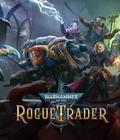
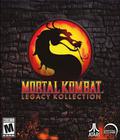
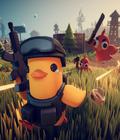




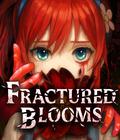

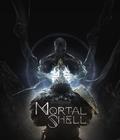 Mortal Shell is a ruthless and deep action-RPG that tests your sanity and resilience in a shattered world.
Mortal Shell is a ruthless and deep action-RPG that tests your sanity and resilience in a shattered world.




























